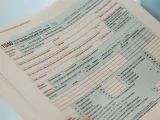
Cut Your Tax Bill with These Common Rental Property Tax Deductions
August 22, 2023Rental property tax deductions are a valuable resource for landlords, offering a variety of ways to decrease your tax bill and save money come tax time. Understanding what rental property tax deductions are and how to take advantage of them is crucial for any property owner looking to minimize their tax liability.
What Are Rental Property Tax Deductions?
Definition of Rental Property Tax Deductions
Rental property tax deductions refer to expenses that landlords can legally deduct from their rental income on their tax return. Because rental properties are considered businesses, landlords are entitled to deduct costs related to maintaining and operating their rental properties.
Why Are They Important?
Rental property tax deductions are important because they allow landlords to offset the costs associated with owning rental properties, reducing their taxable income and lowering their tax bill. By taking advantage of the tax benefits available to rental property owners, you can maximize your profits and minimize your tax liability.
What Expenses Can Be Deducted?
There are a variety of expenses that rental property owners can deduct on their taxes. Some common deductions include mortgage interest, property taxes, repairs and maintenance, utilities, and depreciation. By deducting these expenses from your rental income, you can minimize your tax bill and keep more money in your pocket.
How Do You Deduct Rental Property Expenses?
Keep Accurate Records of All Expenses
The key to maximizing your rental property tax deductions is keeping accurate records of all expenses related to your rental business. Make sure to keep receipts and invoices for all of your expenses and maintain a log of the dates and amounts of each expense.
Claiming Depreciation on Rental Property
Depreciation is another important rental property tax deduction. This deduction allows you to deduct the cost of your rental property over a period of years, reflecting the gradual wear and tear of the property over time. To claim depreciation, you’ll need to file Form 4562 with your tax return.
Using a Tax Professional to Help Maximize Your Deductions
If you’re unsure how to navigate the world of rental property tax deductions, it’s always a good idea to enlist the help of a tax professional. An experienced accountant or tax preparer can help you maximize your deductions and ensure that you’re taking advantage of all the tax breaks available to you as a landlord.
What Expenses Can You Deduct on Your Rental Property?
Mortgage Interest
Mortgage interest is one of the most common rental property tax deductions. If you have a mortgage on your rental property, you can deduct the interest on your loan payments on your tax return. This deduction is available for both primary and secondary residences.
Maintenance and Repairs
Another important rental property tax deduction is the cost of maintenance and repairs. As a landlord, you’re responsible for maintaining the property and keeping it in good condition for your tenants. Any expenses incurred in maintaining the property can be deducted from your rental income.
Property Taxes
Property taxes are a significant expense for rental property owners, but they’re also tax deductible. You can deduct the amount of property taxes you pay on your rental properties from your rental income on your tax return.
What Expenses Can’t You Deduct on Your Rental Property?
Improvements Instead of Repairs
While repairs and maintenance are generally deductible expenses, improvements to your rental property are not. Examples of improvements include adding a new room or renovating a kitchen. These types of expenses must be depreciated over time and are not immediately deductible.
Personal Use of Your Rental Property
If you use your rental property for personal use, you can’t deduct any expenses associated with that use. For example, if you rent out a vacation home for part of the year and use it for personal use for the rest of the year, you can only deduct the expenses associated with the time the property was rented out.
Landscaping Costs
Landscaping costs are generally not tax deductible. While maintaining the property is deductible, any expenses related to improving the landscaping or adding new features are not.
What Forms Do You Need for Rental Property Deductions?
Schedule E
Schedule E is the form used to report your rental income and deductions. You’ll need to fill out this form to claim your rental property tax deductions.
Form 1098
If you have a mortgage on your rental property, you should receive a Form 1098 from your lender at the end of the year. This form will show the amount of mortgage interest you paid during the year, which you can deduct on your tax return.
Form 4562
Form 4562 is the form used to claim depreciation on your rental property. You’ll need to file this form with your tax return to claim this rental property tax deduction.
Overall, rental property tax deductions are a valuable tool for landlords looking to reduce their tax liability and maximize their profits. By knowing what expenses are deductible and keeping accurate records, you can make the most of your rental property investment and keep more money in your pocket at tax time.
Q: What is the significance of rental property tax deductions?
A: Rental property tax deductions can significantly cut your tax bill by reducing the rental income that is subject to income tax. This means that you’ll have more money in your pocket at the end of the year.
Q: Can I deduct my mortgage interest on my rental property?
A: Yes, you are able to deduct the mortgage interest paid on your rental property as an operating expense. This deduction can provide significant tax savings.
Q: What types of repairs can be deducted from my rental property income?
A: You can also deduct maintenance and repairs on your rental property as an operating expense. These deductions can include repairs to the building structure, plumbing, electrical, and other systems that maintain your rental property.
Q: What is depreciation and how does it work for rental properties?
A: Depreciation is the gradual loss of value of a property over time. The IRS allows you to take a depreciation deduction for your rental property each year over a period of 27.5 years. For example, if your rental property is worth $200,000, you would be able to deduct approximately $7,273 per year from your rental income for the next 27.5 years.
Q: What utility expenses can be deducted from my rental property income?
A: You can deduct the expenses of utilities like gas, water, electricity, and other similar expenses from your rental income. These expenses must be associated with the rental property throughout the year, and the renters may have to pay some of them.
Q: What is the difference between deductible and capital improvements?
A: Deductible expenses are those that can be fully deducted within a single tax year, while capital improvements are expenses that add value to the property and are deducted over the life of the property that varies from 5 years to 27.5 years depending on the nature of the capital improvement.
Q: Can I deduct my rental property income as a business expense?
A: Yes, you can deduct losses associated with managing your rental property as business expenses on your tax form, although it is associated with limitations. The income generated from rental property is taxed as personal income.
Q: What expenses related to property management can be deducted from rental property income?
A: You can deduct expenses related to hiring a property management company or paying fees for accounting, legal, and other services related to running your rental property.
Q: Can I claim travel expenses as a deduction for my rental property?
A: Yes, you can deduct travel expenses associated with maintaining your rental property or for traveling to rental property seminars and workshops. You can deduct mileage at the current IRS rate, plus other expenses associated with travel such as food and lodging.
Q: What state and local taxes can be deducted related to my rental property?
A: You can deduct any state and local taxes associated with your rental property, including property taxes and either sales tax or income taxes, but the exemption for state and local tax paid is capped at $10,000.


